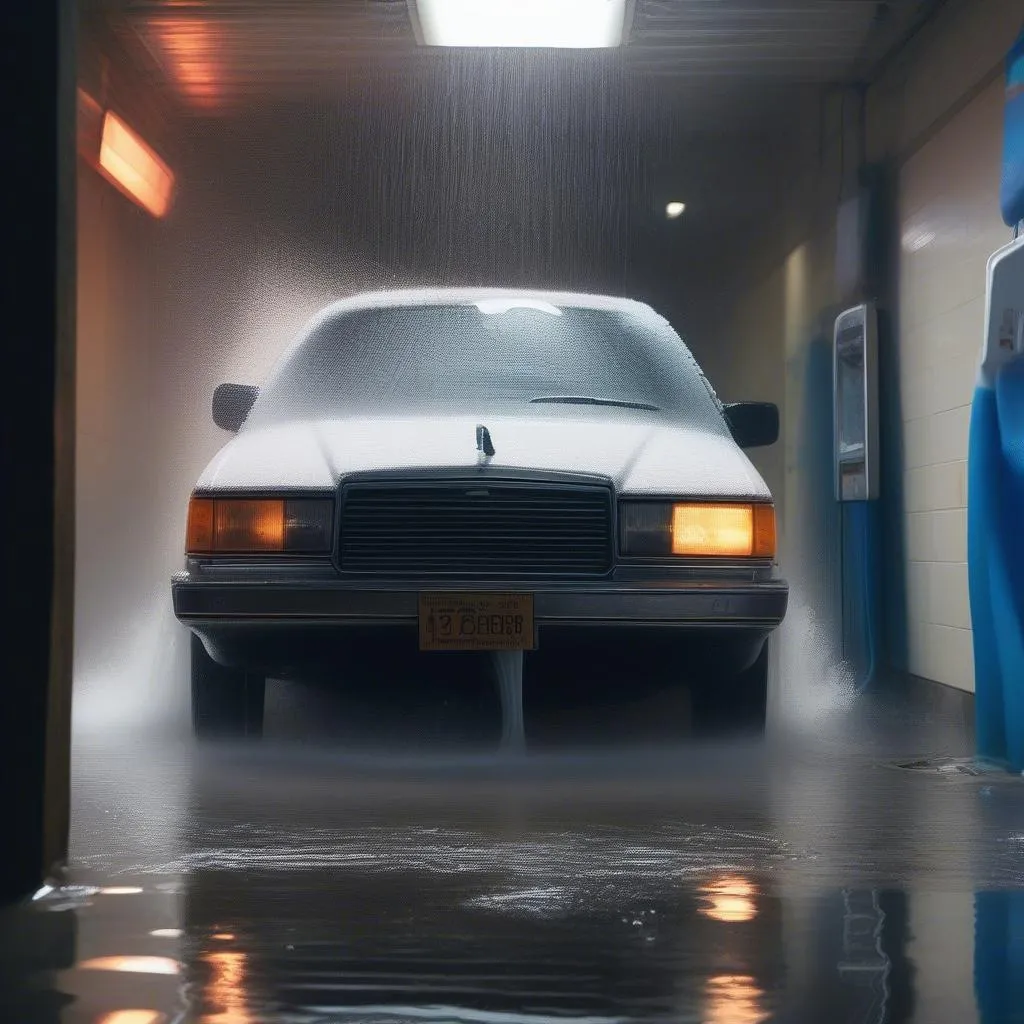You’ve just driven your car through a car wash, feeling a sense of satisfaction as your once dirty vehicle emerges clean and sparkling. But have you ever stopped to think about what happens to the electrical system during this process? It might seem like a simple wash, but it can actually have some surprising effects on the delicate electrical components of your car.
What Happens to the Electrical System?
The high-pressure water jets and cleaning agents used in car washes can put stress on your car’s electrical system in a few ways:
Water Intrusion:
Water is the enemy of electronics, and this is especially true for your car’s electrical system. The high-pressure water jets can force water into vulnerable areas, such as:
- Electrical connectors: These connectors are designed to be waterproof, but prolonged exposure to water can damage the seals, leading to corrosion and electrical malfunctions.
- Light fixtures: The headlights, taillights, and turn signals can be susceptible to water damage, especially if the seals are worn or broken.
- Engine compartment: The engine bay is home to many electrical components, including the battery, alternator, and wiring harness. Water intrusion here can cause serious damage, including short circuits and fires.
Corrosion:
Even if water doesn’t directly enter your car’s electrical system, the cleaning chemicals used in car washes can contribute to corrosion. This corrosion can damage the metal components of the electrical system, leading to resistance and ultimately, failure.
Electromagnetic Interference (EMI):
The powerful motors and electrical systems used in some car washes can generate electromagnetic interference (EMI), which can disrupt the operation of sensitive electrical components in your car, such as the radio or GPS system.
The Consequences of Water Damage
Water damage to your car’s electrical system can lead to a range of problems, including:
- Electrical malfunctions: This can range from minor issues like flickering lights to major problems like engine failure.
- Corrosion: Corrosion can cause electrical resistance, leading to overheating and even fire.
- Short circuits: Water can create a path for electricity to flow, leading to short circuits and damage to electrical components.
How to Minimize the Risks
There are a few things you can do to minimize the risks of water damage to your car’s electrical system:
- Choose a reputable car wash: Not all car washes are created equal. Look for a reputable car wash with a good track record and a focus on safety.
- Consider a touchless car wash: Touchless car washes use high-pressure water jets and cleaning agents, but they don’t involve any physical contact with your car. This can help to reduce the risk of water intrusion and damage to electrical components.
- Protect your electrical components: You can protect vulnerable areas, such as electrical connectors and light fixtures, with waterproof covers or sealant.
- Inspect your car: After a car wash, take a few minutes to inspect your car for any signs of water damage. This includes checking for leaks, corrosion, and electrical malfunctions.
Expert Insights
“Water damage to a car’s electrical system can be a serious problem, but it can often be avoided with proper precautions,” says Dr. Emily Anderson, an automotive electrical engineer. “Regular maintenance, such as checking the condition of electrical connectors and seals, can help to prevent water intrusion and corrosion.”
Frequently Asked Questions:
Is it safe to wash my car in the rain?
While a light drizzle is unlikely to cause any serious damage, heavy rain can increase the risk of water intrusion and electrical problems.
Can I drive my car immediately after a car wash?
It’s generally advisable to wait a few minutes for your car to air dry before driving. This will help to reduce the risk of water intrusion and electrical problems.
What should I do if my car’s electrical system has been exposed to water?
If you suspect your car’s electrical system has been exposed to water, it’s best to have it inspected by a qualified mechanic as soon as possible.
Conclusion
Taking a few precautions and following some simple tips can help you keep your car’s electrical system safe and sound, even after a car wash. So next time you’re thinking about giving your car a clean, remember the potential risks to its electrical system and take the necessary steps to protect it.
 Car wash water damage
Car wash water damage
Need Help with Car Diagnostics?
For expert help with car diagnostics and electrical system repairs, contact us at +84767531508. We offer 24/7 support and can help you diagnose and repair any issues you may be experiencing.
Related articles:


